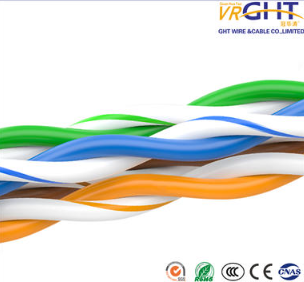
What Is a Network Connector?
In today's interconnected world, network connectors play a crucial role in establishing reliable and efficient communication between devices. Whether it's for home networks, office setups, or data centers, understanding the fundamentals of network connectors is essential. This ultimate guide aims to provide a comprehensive overview of network connectors, their types, purposes, and clarify common misconceptions. Let's delve into the world of network connectors and unravel the mysteries surrounding them.
What Is a Network Connector?
A network connector is a hardware component that facilitates the connection between networking devices, allowing data transmission across a network. It serves as a link, enabling seamless communication and the transfer of information between computers, routers, switches, and other network-enabled devices. Network connectors are designed to ensure secure and reliable data transfer, while also accommodating different types of cables and ports.
Types of Network Connectors
In this section, the author would list some types of the network connectors.
Ethernet Connectors
●RJ-45: The RJ-45 connector is the most widely used type for Ethernet connections. It utilizes an 8-pin modular plug to establish a connection between devices, such as computers, switches, and routers.
●RJ-11: Commonly used in telephone networks, the RJ-11 connector features a smaller form factor than RJ-45 and employs a 4-pin modular plug.
●RJ-11: Commonly used in telephone networks, the RJ-11 connector features a smaller form factor than RJ-45 and employs a 4-pin modular plug.
Fiber Optic Connectors
●LC Connector: The LC connector is a small, high-density connector commonly used in fiber optic networks. It offers low insertion loss and high precision, making it suitable for high-speed data transmission.
●SC Connector: The SC connector is a square-shaped connector widely used in data centers. It is easy to install and provides excellent performance and stability.
●SC Connector: The SC connector is a square-shaped connector widely used in data centers. It is easy to install and provides excellent performance and stability.
Coaxial Connectors
●BNC Connector: The BNC (Bayonet Neill-Concelman) connector is primarily used in video and radio frequency applications. Its bayonet-style locking mechanism ensures a secure connection.
Why Use a Network Connector?
Network connectors serve several crucial purposes in the realm of networking:
Establishing Connections
Connectors enable the seamless interconnection of devices, ensuring efficient communication and data transfer.
Ensuring Compatibility
Network connectors allow for compatibility between various cables and ports, enabling devices with different connectors to connect and communicate effectively.
Providing Reliability
High-quality connectors offer stable and reliable connections, minimizing data loss or disruptions.
Enabling Scalability
Network connectors are designed to support various networking technologies, allowing for easy expansion and scalability of networks.
Is a Connector a Cable or Port?
A network connector should not be confused with a cable or a port. While a cable is a physical medium that carries signals between devices, a network connector serves as the interface point that connects the cable to a port. In other words, a connector acts as the intermediary that facilitates the link between the cable and the port, enabling data transmission.
Is an Adapter the Same as a Connector?
No, an adapter is not the same as a connector. An adapter is a device used to convert one type of connector into another. It allows for compatibility between different connector types, enabling devices with incompatible connectors to establish a connection. Adapters come in various forms, such as USB to Ethernet adapters or HDMI to VGA adapters, providing flexibility and versatility in connecting different devices.
Is a Connector and Plug the Same Thing?
In networking, a connector and a plug are not the same. A connector is a fixed component attached to a cable, whereas a plug is a detachable component that is inserted into a socket or port. The connector remains permanently affixed to the cable, while the plug can be inserted and removed as needed.
Conclusion
Network connectors are the unsung heroes of modern communication, facilitating seamless connectity and data transfer between devices. providing a secure and reliable link, network connectors play a crucial role in establishing efficient networks for homes, offices, and data centers. Therefore, understanding the different types of network connectors is essential for selecting the appropriate hardware for your networking needs.







Leave a comment